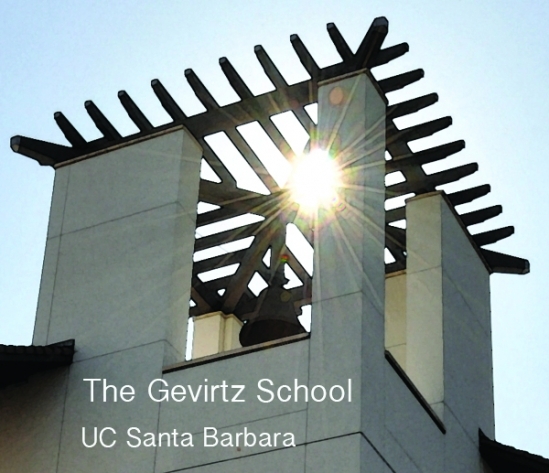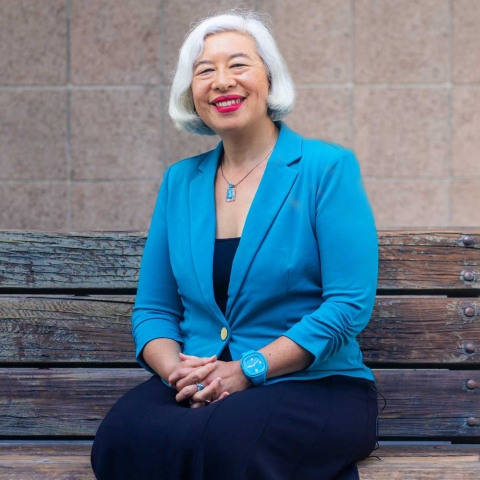Gevirtz School lecture series ‘Fast & Curious’ returns to highlight research, service and impact

Immigration is dramatically reshaping education systems worldwide. In the United States, recent studies have found, 25% of the school-aged population has at least one foreign-born parent, with the majority of immigrant-origin students themselves being U.S.-born citizens. Meanwhile, according to Pew Research Center, over two-thirds of teachers are white, monolingual, middle-class women.
“In light of the changing demographic composition of U.S. schools, it has never been more important for educators to be prepared to effectively educate students whose lives may be affected by immigration policies and migration,” said Carolyn Sattin-Bajaj, an associate professor in UC Santa Barbara’s Gevirtz Graduate School of Education. “There remains a meaningful gap between teachers’ knowledge about migration and its impacts and the daily lived experiences of children growing up in immigrant households. Questions about the ways in which teachers are (or are not) prepared to effectively support and educate students of immigrant backgrounds have become more relevant than ever.”
Sattin-Bajaj will discuss how to better prepare teachers for immigrant-origin students when Fast & Curious: ED Talks from UC Santa Barbara’s Gevirtz School returns to the Santa Barbara Public Library Wednesday, Jan. 25, at 7 p.m. She is among the three faculty members, two graduate students, and one postdoctoral fellow slated to deliver 8-minute talks exploring how their work — and in turn, the school — is shaping education and applied psychology.
“A hallmark of the faculty, staff, and students in the Gevirtz School is our strong commitment to doing work that matters — work that is designed to uplift all of the members of our community,” said Jeffrey Milem, Jules Zimmer Dean’s Chair of the Gevirtz School. “Nowhere is this more evident than in the work that our community does to inform and improve educational and social policy. We welcome the community to come learn about some of this work at our next Fast & Curious event.”
For this edition of Fast & Curious, all the presentations will discuss ways in which the Gevirtz School is centering its research and service on policy:
- Eupha Jeanne Daramola, Chancellor’s Postdoctoral Fellow, Department of Education, “Fever Dreams: The Promise of Multi-cultural Education Imaginaries”
- Erika Felix, Professor, Department of Counseling, Clinical and School Psychology, “Psychology in Washington: Connecting Science, Practice, & Policy”
- John Galisky, doctoral student, Department of Education, “Teaching Is Easy, Motivating Is Hard: Leveraging Career Motivation to Promote Academic Excellence”
- Tania Israel, Professor, Department of Counseling, Clinical and School Psychology, “Putting the ‘Bi’ in the Biden Administration Priorities”
- Natalie Larez, doctoral student, Department of Counseling, Clinical and School Psychology, “I Need an Interpreter: Disseminating Research for Policy”
- Carolyn Sattin-Bajaj, Associate Professor, Department of Education, “Ready or Not? Preparing Teachers to Educate Children of Immigrant Backgrounds”
For the first time, the school will provide ASL and Spanish language interpreters to increase accessibility to the lecture series. The event is free and open to the public.
Shelly Leachman
Editorial Director
(805) 893-2191
sleachman@ucsb.edu




